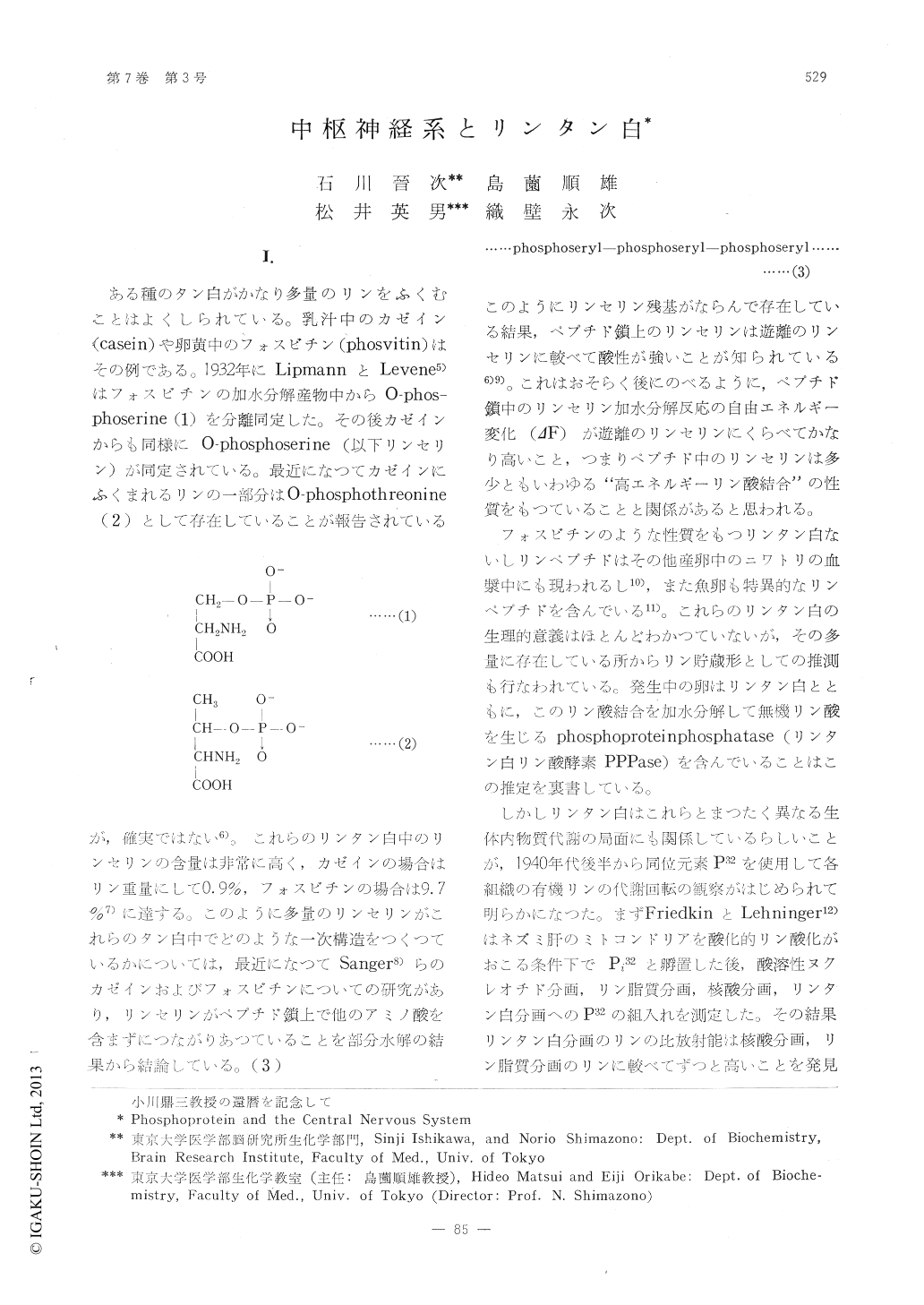Japanese
English
- 有料閲覧
- Abstract 文献概要
- 1ページ目 Look Inside
I.
ある種のタン白がかなり多量のリンをふくむことはよくしられている。乳汁中のカゼイン(casein)や卵黄中のフォスビチン(phosvitin)はその例である。1932年にLipmannとLevene5)はフォスビチンの加水分解産物中からO-phosphoserine(1)を分離同定した。その後カゼインからも同様にO-phosphoserine(以下リンセリン)が同定されている。最近になつてカゼインにふくまれるリンの一部分はO-phosphothreonine(2)として存在していることが報告されているが,確実ではない6)。これらのリンタン白中のリンセリンの含量は非常に高く,カゼインの場合はリン重量にして0.9%,フォスビチンの場合は9.7%7)に達する。このよりに多量のリンセリンがこれらのタン白中でどのような一次構造をつくつているかについては,最近になつてSanger8)らのカゼインおよびフォスビチンについての研究があり,リンセリンがペプチド鎖上で他のアミノ酸を含まずにつながりあつていることを部分水解の結果から結論している。(3)このようにリンセリン残基がならんで存在している結果,ペプチド鎖上のリンセリンは遊離のリンセリンに較べて酸性が強いことが知られている6)9)。
A survey of the present status of the study on phosphoproteins in brain as well as other animal organs were made.
It was emphasized that phosphoprotein was the richest in brain among organs so far studied except germ cells of certain vertebrates, and metabolism of the compound was also known to be the most active in the central nervous system.
The studies of Heald and othres revealed the rapid incorporation of radio active phosphrus into phosphoprotein from inorganic phosphate after application of electric stimulus on brain cortex slice.
The authors of the present article were able to show the very rapid incorporation of radioactive phosphorus into phosphoproteins from labeled adenosine triphosphate by brain particulate matter.
Under the same experimental conditions, the incorporation into fractions other than phosphoprotein were negligible. Phosphoprotein-kinase was shown to be firmly attached to the particulate fraction thus indicating that the observed incorporation was the reaction catalyzed by this enzyme.
Labeled phosphoprotein obtained was purified more than 70 fold after solubilization with dilute acid and was found to be very similar to phosvitin, a phosphoprotein obtained from egg yolk.
Possible roles of the phosphoprotein in brain were discussed especilally relating to the carrier role of the compound in active transport.

Copyright © 1963, Igaku-Shoin Ltd. All rights reserved.


